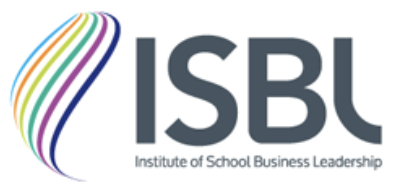
School Resource Management Advisers (SRMAs)
Do you want to become a School Resource Management Adviser?
Want to know more about what SRMAs do?
Please watch a short video of ‘SRMA’s in Conversation’
- YouTube link here.
What do SRMAs do?
The aims of the SRMA role are:
To provide a supported ICFP review where schools and trusts value working with an experienced peer and sharing of best practice
Develop evidence-based recommendations which the organisation can take forward
Promote and share best practice on managing resources across maintained schools and academy trusts, including the use of DFE tools and resources and identifying new procurement opportunities through the DfE Schools Commercial Team.
Build the financial capability of the sector to consistently high standards
Provide effective peer-to-peer support to schools and trusts that would most benefit
Identify opportunities where schools and trusts can improve efficiency/increase their revenue generation
Enable organisations to know how they can use ICFP to have the greatest impact on educational outcomes and reduce deficits/increase reserves
Support schools and trusts to use the opportunity to strengthen their governance and oversight of their finances
More about SRMA’s
-
SRMAs support Academy Trusts and LA maintained schools to ensure they have the best possible resource management. Sometimes they are directed to work with those who have come to the DfE’s attention as having poor financial health.
SRMAs take a holistic view of the school’s/trust’s financial situation, including consideration of the following issues:
Human resources:
Efficient curriculum delivery
Workforce planning
Wider use of staff and leadership time
School management and governance
Financial management and challenge
Curriculum & financial planning
School Resources:
Procurement eg consideration of National Deals, schools’ buying strategies etc.
Value for money
Capital finance and estate management
-
In order to become a SRMA with ISBL you need to:
Complete below application form and send a full CV to: SRMA@isbl.org.uk
Attend a 2-hour induction web-based session. This can be booked with ISBL after they have received your application at: SRMA@isbl.org.uk
Talk through your application with one of the assessors, who can identify any training needs
Attend an online ½ day training session, looking at how SRMAs use ICFP
Fully prepare for the accreditation panel session by a ensuring you have a deep working knowledge of ICFP. If necessary, attend training and purchase bespoke ICFP tools to enhance knowledge and working practice. (see next section - SRMA accreditation process)
ISBL recommends that you complete a mock-case study, working with a mentor to support your preparation.
Take time to review the frequently asked questions, which offers advice based on questions raised by previous candidates.
Once ready for assessment then you must book your accreditation panel which commences with a desk top case study task. Book this with ISBL via: SRMA@isbl.org.ukAttend an online accreditation panel session with 2 assessors, approx. 90 minutes
You will be paid by a £400 fee if you pass the accreditation. This can be claimed from ISBL once the panel has been attended and relevant PO and information will be supplied to candidates.
-
Accreditation
All SRMAs have to pass an independent accreditation panel
This will be completed with EPI in a four stage process, see details here.
The purpose of accreditation is to ensure that those who were applying for the role had the necessary skills, knowledge and experience to undertake the role
SRMAs need to be credible, consistent, capable, confident, conscientious and have the capacity to carry out this vital role effectively
The assessment panel includes a desk-top case study review which was designed to closely mirror what an SRMA might expect to find on a deployment
Candidates received the desk-top review in advance of the panel so that this can be completed and assessed prior to attendance at the accreditation panel.
At the accreditation panel the candidate is expected to demonstrate how and why they have drawn-up the range of evidence based recommendations that the school or trust may wish to consider implementing, based on the supplied data in the case study.
During the accreditation panel discussion, assessors probe the recommendations made by the candidate and assess their understanding and use of ICFP metrics.
The accreditation panel discussion assesses if the candidate has the knowledge skills and experience to carry out a supportive ICFP review and can use the data to offer evidence-based recommendations.
If you still have questions before you complete your application and send this to SRMA@isbl.org.uk then please just send an email and we will be happy to discuss these with you.
-
SRMA must be familiar with a range of ICFP ‘tools’.
It is important to accurately calculate the 12 Key Metrics used in ICFP so that SRMAs can investigate potential areas of inefficiency and make evidenced base recommendations.
ISBL have developed a commercial tool which many SRMA use, called A-SOT, the Advanced Strategic Optimisation Tool. This however is not a condition of being an ISBL SRMA.
ASOT Uses the ISBL Approach to ICFP
-
ISBL is largest DfE approved Supplier organisation
SRMA cannot be signed up with more than one Supplier.
ISBL provides training and support for their SRMA to prepare for induction and accreditation, and their deployment activity.
SRMA are paid through their supplier not directly from DfE.
-
Over 110 SRMAs are part of the ISBL team, providing high levels of support and insight across our team of highly skilled practitioners.
Read what it’s like to be a SRMA with ISBL, written by Carla Bradshaw.
ISBL have a dedicated team (Stephanie, Lisa and Sarah) delivering the SRMA programme.
We provide support and training for all team members, and work with the DfE to ensure the programme makes a positive difference for schools and academies across the country.
ISBL have received consistently positive feedback about the work carried out by their team members
Minister Baroness Berridge has often praised the work of the SRMA team, highlighting 3 emergency deployments which had been carried out by ISBL team members as excellent examples.
ISBL provide the following support and training in order to ensure that all team members can provide effective system leadership work:
National team networking and sharing of practice and policy
Mentoring opportunities through peer support
Peer Review on work and reports
Full quality assurance on deployment reports sent to the DfE
Monthly training and CPD sessions Link to Blog
Daily education news, policy & updates
-
A SRMA completes a supported ICFP review
By supported, it means that this is carried out in conjunction with the school leaders and so it is a collaborative process.
Feedback from recent deployments:
Windsor and Maidenhead LA, following their receipt of the SRMA deployment reports commented;
“Once again we have found the SRMA deployments incredibly helpful for the schools involved, The SRMA provided some excellent reports and suggestions.”
-
SRMA will help schools to balance the relationships between:
The amount of teaching time required to run the timetable
The amount of support staff time required (outside of mainstream secondary settings)
The proportion of time teachers spend teaching
Class sizes
The cost of employing teachers
Available revenue including additional income to government funding
Non-staffing costs of running the school
The budget available for teaching costs
Some schools and trusts use additional metrics, such as ‘curriculum bonus’.
-
The DfE provides a wide range of information, tools, training and guidance to help schools and multi-academy trusts with.
SRMA use these and other tools to provide a supported review during a deployment. The data and findings are used to provide an evidence-based set of recommendations which the organisation can use in their strategic planning and activity.
-
In the 2017/18 academic year, ISBL worked with the DfE to pilot the SRMA project to support the department’s wider excellent school resource management strategy.
The DfE carried out an evaluation about the pilot programme to demonstrate the impact of the SRMA programme in providing tailored advice to academy trusts and schools on effective resource management.
The pilot included SRMA deployments to 72 academy trusts.
The report from January 2020 shares useful insights into the initial phase of the SRMA programme which were incorporated into the full programme rollout.
DfE key findings were:
Trusts valued working with an expert peer, with 94% rating their experience of working with a SRMA as good or very good.
SRMAs were able to identify significant opportunities for the reallocation of funds for trusts to pursue.
Following a SRMA deployment, trusts were expecting to improve the overall financial health of the organisation or spend on areas, that will have the greatest impact on educational outcomes.
The full SRMA pilot evaluation report is available to read here.
Useful DfE links on Gov.uk
-

School resource management self-assessment checklist
The SRMA programme is a DfE funded system leadership role. SRMAs will need to have a thorough working knowledge of the DfE school resource management tools and information on gov.uk
-

School resource management adviser (SRMA) pilot evaluation
The SRMA programme is a DfE funded system leadership role. SRMAs will need to have a thorough working knowledge of the DfE school resource management tools and information on gov.uk
-

Integrated curriculum and financial planning (ICFP)
The SRMA programme is a DfE funded system leadership role. SRMAs will need to have a thorough working knowledge of the DfE school resource management tools and information on gov.uk
Please find FAQ’s here.
For more information please contact Sarah Ray at srma@isbl.org.uk

